Interviews
Interview with Frank Solivan of Dirty Kitchen
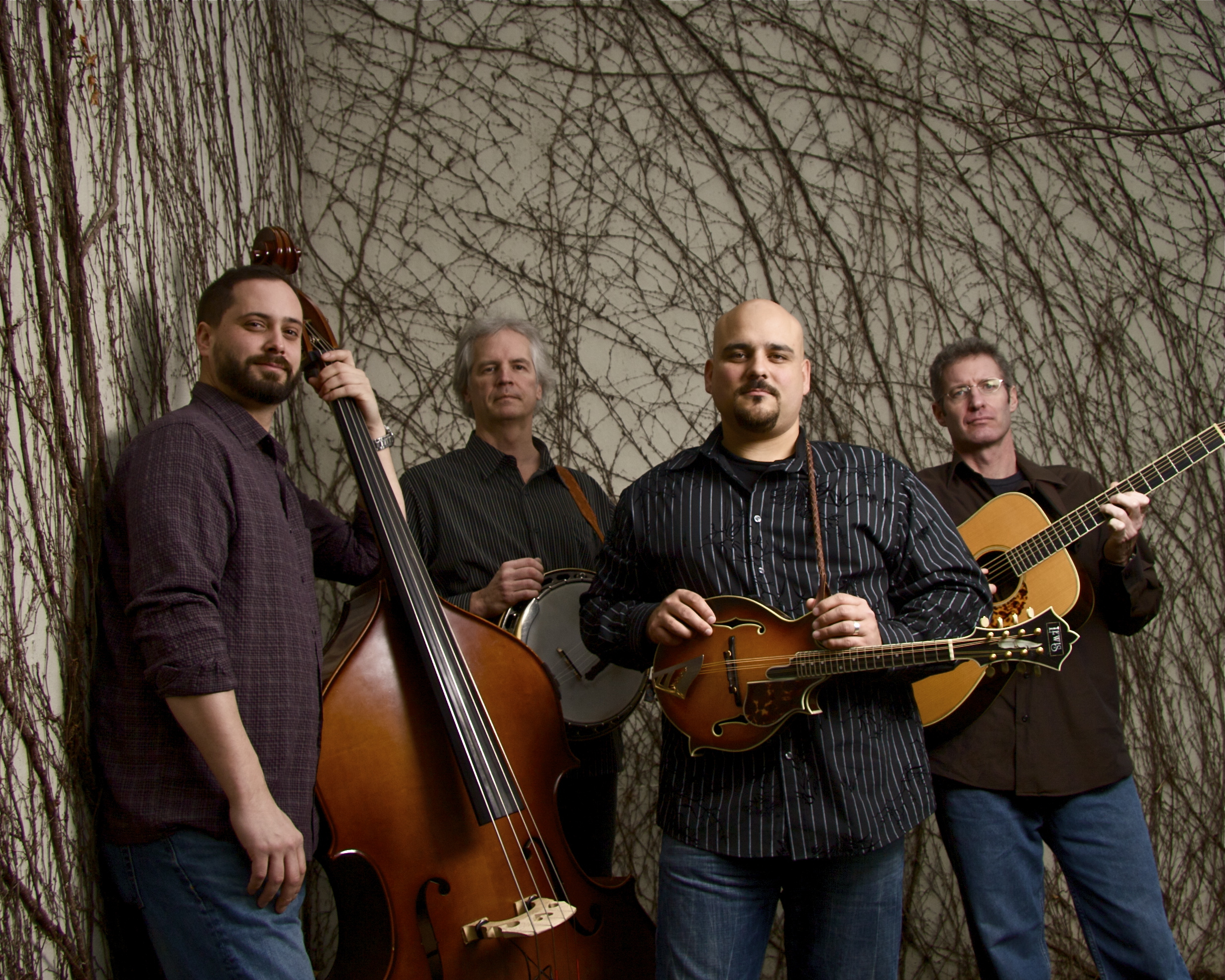
DC-area bluegrass musician Frank Solivan and his band Dirty Kitchen had a wildly successful 2010 with the release of their self-titled album. They’ve never actually had a CD release show, but better late than never: on March 7 (Solivan’s birthday), they’ll be playing one up in Rockville as part of IMT’s weekly concert series. If you haven’t been to one of the band’s house concerts—which include a Solivan-made meal—now’s a perfect time to see what all the fuss is about.
American Noise: How did you first get interested in bluegrass music?
Frank Solivan: My dad is the ninth of ten kids. His mother—my grandmother—was a mandolin and fiddle player. She knew how they all worked, guitar, banjo, and bass. Her name was Bonnie and she and her siblings were vaudeville tumblers, and they did some other stuff. She was an excellent mandolin player; not really fancy or anything, but she made every note count on the fiddle and mandolin. She died when I was in kindergarten but she passed on a love of music. There’s pictures of family reunion that date back to when she was a little girl where they all had their instruments; she passed that love of music down to all of her ten kids—my aunts and uncles; one of my aunts is in the Western Swing Hall of Fame, actually. They all had kids who played music and had bands. We’d go to a reunion or to someone’s house, we’d have a meal, and instruments would start flying out of their cases. I didn’t know anything else. In high school I’d attend parties and go “This is weird. People are listening to loud, foolish music and making out and drinking. Where are all the instruments?” (laughs)
My mom sings and plays guitar. Her brother and dad play some guitar, too. There’s music on her mother’s side; she came from a big Italian family and there was a bunch of concert violinists and cellists. I don’t know if it was genetics or environment, but there was definitely something that stuck.
AN: Were you always in the DC area, or did you grow up elsewhere?
FS: I grew up on a dairy farm in the central valley of California. My folks split when I was 13 and I went back and forth at that time. I was already playing music and doing fiddle contests then. I turned 18 and moved to Alaska to play some shows with Ginger Boatwright and Doug Dillard. Ginger married a bush pilot who was also this amazing explosives guru; he owned this company called Statewide Blasting and Perforating Service. He gave me a job working with air track drills and jackhammers and explosives. Explosives and bluegrass: a winning combination!
I heard about an audition for the Navy Band from some guys who were playing the Anchorage Folk Festival. The bluegrass unit, Country Current, is just an offshoot from their main country band. There was an electric guitar position there, so I practiced up and they gave me an audition tape to learn 25 or 30 songs. There were two rounds of auditions, and the next thing you know, I’m doing pushups in basic training.
The Navy Band is the premier band here in DC; there’s fleet bands all around the world, but I was promoted right out of basic training to E-6 which is pretty much unheard of in any other field; they wanted to attract professional musicians and give them a professional wage. I got out in May of 2009 to start Frank Solivan & Dirty Kitchen. And it feels like we’ve been doing pretty well.
AN: Why did you leave the Navy Band?
FS: It wasn’t fulfilling me. I was just playing music; I wasn’t making music there. I needed to go make music and be creative and play with the people I wanted to play with. I wanted to have a choice in who I played music with.
AN: How’d you hook up with the guys who would become Dirty Kitchen?
FS: I’d been in the area since 2003 and there’s a pretty good acoustic music community here. Shortly after I got here, I met Stefan Custodi, who’s our bass player. We starting jamming and doing a couple gigs here and there. Right around the same time I met Mike Munford when he was playing Madame’s Organ. The night I met him I was invited by my friend Bob Perilla to sit in on a few tunes, and when we played together , we were like two little kids at Christmas.
I recorded an album called Selfish Tears in 2006 and both Stefan and Mike are on that record, and that was basically the core of this whole idea. I thought it sounded really good and felt really good. I was in need of a guitar player and singer and made a few phone calls and a friend recommended Lincoln Meyers. He came and played with us and Stefan and I knew he was the one. Funny enough, Lincoln and I had met before; we were both invited onstage with the Infamous Stringdusters in Nashville to play some tunes around 2007. But I didn’t put two and two together and realize that it was the same guy I had already met.
AN: This new record has done really well. Was that surprising for you guys at all?
FS: My plan was to make some really good music and we had a business plan to go out and try to land a record deal. None of them really wanted anything to do with us; I think it was just one of those points in time where everyone in the music industry is hurting and they didn’t want to take a chance on someone they didn’t know. We were a new band and none of us were super well-known. I said to myself, “I put two other records out, I know how it works, and I’ve learned a lot since the last one came out. I’m going to get some advice from some friends in the industry and put it out on my own label.” And you know that saying “if you can’t beat ‘em, join ‘em;” in jest I had my own saying, “if you can’t join ‘em, beat ‘em!”
I really wanted to do as much as I could to get on the map, because I needed to make a living. This is my passion and what I’m good at. I’ve spent my life to get to this point and make a living doing it.
It’s been out about six months and it’s not selling too bad when we play a show, and people are buying it pretty steadily online. It’s paid for itself and I’m happy with that. But I want to share it with other people not just because I want to make a living, but because I think bluegrass music is currently involving in such a way musically that may be faster than some people want to accept. There’s two sides of that coin. The traditionalists say “Oh, you should play more traditional stuff.” But Bill Monroe was an experimenter, and from the early days of singing with his brother Charlie to when he played with Flatt and Scruggs, it was a completely different sound in the span of what, ten years? There was so much more energy and drive. Then in the ‘50s, there was another jump. It’s just incredible how it evolves. I feel like we’re trying to make our own sound and you can hear all those influences in our playing, but there are some people who say “You need to play more traditional.” Then there’s people who say “I didn’t realize I liked bluegrass until I heard you guys.” I want to reach a really broad audience with our music to help the whole industry of bluegrass, which is fairly small in the big scheme of things. I want to help bluegrass reach a bigger audience, and I’m still learning how. It’s a huge learning process; I think the Infamous Stringdusters and Crooked Still, and a couple other great bands are doing really well at that. I want to straddle the fence between traditional and progressive.
AN: I’m really digging the original tracks on the record. What’s the songwriting process like for you?
FS: Sometimes I can just be laying in bed, have a melody go through my head, and all of a sudden I’m picking a tune on the mandolin. Or I’ll sit down to write with my guitar and start messing around with a few chord changes; sometimes I’ll have a melody and a hook, and then 15 minutes later, there’s a song sitting in front of me on paper or my computer screen. That’s what happened with “Driftin’ Apart;” in 15 minutes I had a tune, and just had to refine it a bit. That same day I wrote “Left Out in the Cold,” which is about a homeless person.
I try to write a song that says something or makes you think about something instead of just saying it blatantly. Like the first line of “Left Out in the Cold” is “A tattered coat and hunger pains/The shelter’s dry if it rains/This cardboard sign is getting old/And the seasons change from hot to cold.” What I try to do is set something up like that and not say, “Hey, I’m a homeless guy and it’s cold out here. I think I’ll go to the shelter if it rains.” That would be too easy. But for me it’s difficult to say something without saying it.
I have another song that I’ve been working on since November. Sometimes the ones that come really fast are great, and sometimes they’re not. Sometimes the ones that take some time are great, and sometimes they’re not. There’s just no way to tell until you play it with the band, feel it out, and get some arrangements. What I like to say is “you have to hear it to hate it.”
AN: How’d you get into the whole cooking and house concert thing? How successful has that been for you guys?
FS: I love to play music and I love to cook, and when we put that together, it turns out awesome. Food and music bring people together. Like I was saying earlier, those times I spent with my family sharing a meal and playing music have been some of the most memorable and poignant times in my life. It’s this really awesome vibe. It’s the same thing in the bluegrass community. When people get together for jam sessions, they’ll bring food. I wanted to bring that vibe to another level. I’d done it a couple of times and they turned out great. We’re continually booking them; it’s a great opportunity for people in the region to get a meal and hear some music. It’s basically a private party with a three course meal and a concert. We’ll do some events on the road for up to 50 people where I cook what’s called a “one pot wonder”—I heard Rachel Ray is using that now, so I don’t know if I should use it (laughs). That’s a little less formal; we don’t bring tablecloths or anything, just bowls and spoons and a huge, 36-quart pot that I cook in. Then we play a concert after everyone gets a bellyful.
AN: It’s only been a few months since the record came out, but are you working on any new material?
FS: We’re talking about getting in the studio next winter. We’re gonna ride it out this year; since the record came out in August, we didn’t really have a chance to tour with it in spring and summer. Hopefully by Spring or Summer 2012 we’ll have a new record if everything pans out okay.
AN: So you’ve got an IMT gig on March 7, which is also your birthday. Any special plans for that show?
FS: I’m not promising any cake, but we have some guests coming. One in particular is my mother, who’s going to be singing some songs with me. She’s an incredible singer and a huge supporter of what I do; she was on “Once in a Very Blue Moon” on my album Selfish Tears. Being able to sing with my mom will be a huge birthday present for me. We’re gonna do a lot of material from the new record. I would definitely like to encourage people in the area to check out the live show. The record is good and we’re proud of it, but the live show really captures who we are. We’re going to play a lot of music that isn’t on the record, but is super-fun to play and is super-entertaining to hear, plus a few tunes that I never play at concerts. We’ll also be celebrating the success of the album—we never really had an album release concert, so you can consider this an area release show if you want. It’ll be a fun night for everyone involved.
- Lists13 years ago
Top 10 Country Music Albums of 2010
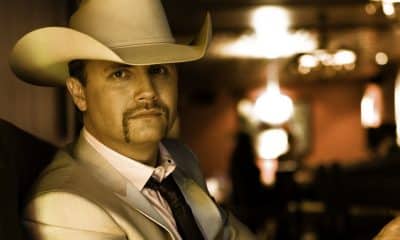
 Interviews5 years ago
Interviews5 years agoJohn Rich – The Interview

 Song Reviews16 years ago
Song Reviews16 years agoTaylor Swift – “Love Story”

 Interviews5 years ago
Interviews5 years agoHoneyhoney on Hiatus: Revisit our 2008 Interview with Suzanne Santo
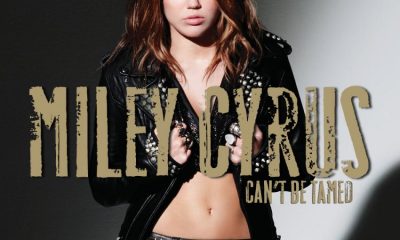
 Album Reviews14 years ago
Album Reviews14 years agoAlbum Review: Miley Cyrus – Can’t Be Tamed
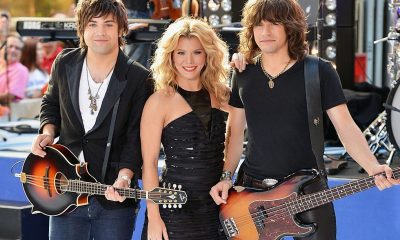
 Song Reviews6 years ago
Song Reviews6 years agoThe Band Perry – “Hip To My Heart”
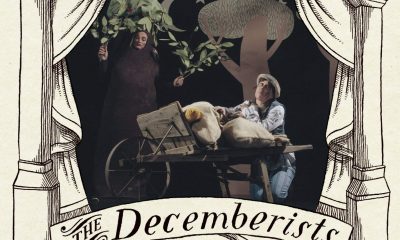
 Columns5 years ago
Columns5 years agoThe Link Between Folk Music’s Past and Present
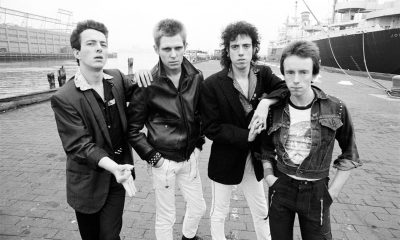
 Columns5 years ago
Columns5 years agoIs Marketing Killing Rock and Roll?

